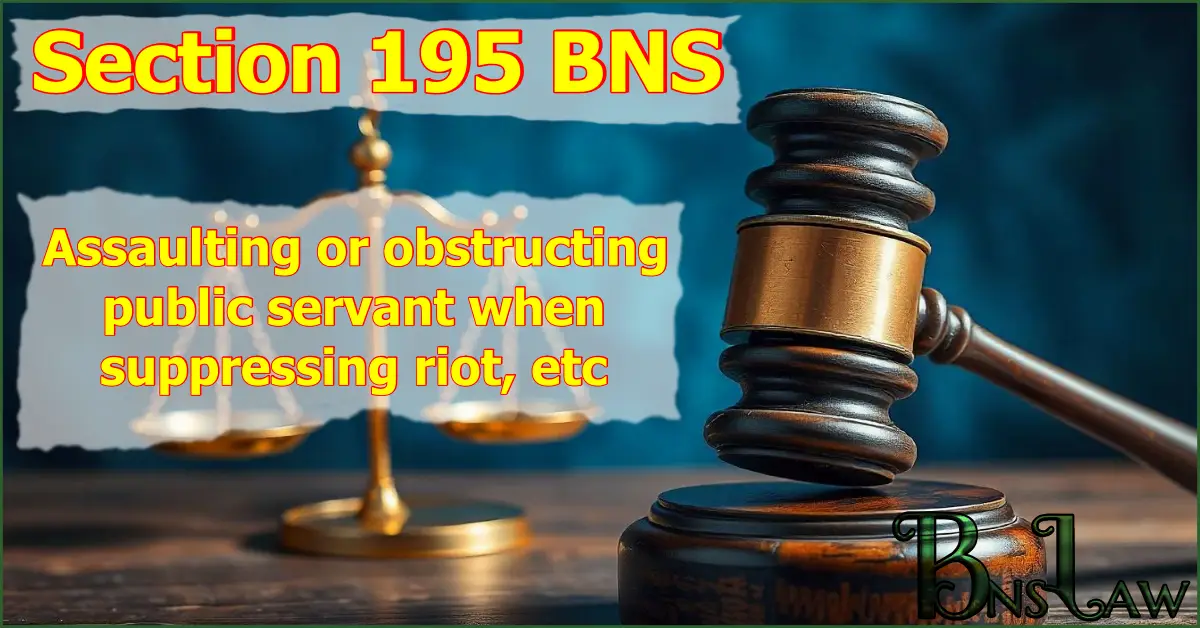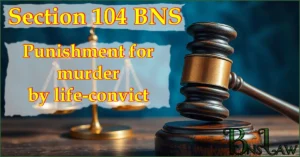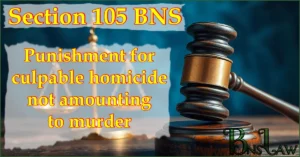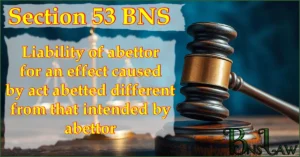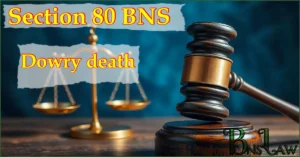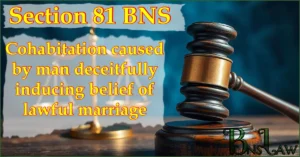Section 195 BNS | BNS 195
195(1) BNS
Whoever assaults or obstructs any public servant or uses criminal force on any public servant in the discharge of his duty as such public servant in endeavouring to disperse an unlawful assembly, or to suppress a riot or affray, shall be punished with imprisonment of either description for a term which may extend to three years, or with fine which shall not be less than twenty-five thousand rupees, or with both.
195(2) BNS
Whoever threatens to assault or attempts to obstruct any public servant or threatens or attempts to use criminal force to any public servant in the discharge of his duty as such public servant in endeavouring to disperse an unlawful assembly, or to suppress a riot or affray, shall be punished with imprisonment of either description for a term which may extend to one year, or with fine, or with both.
READ OTHER SECTIONS OF CHAPTER XI — OF OFFENCES AGAINST THE PUBLIC TRANQUILLITY
FAQs of BNS Section 195
-
195 BNS punishment and fine
Punishment and fine under Section 195 of the BNS—
195(1): Imprisonment for 3 years, or fine not less than 25,000 rupees, or both.
195(2): Imprisonment for 1 year, or fine, or both. -
195 BNS cognizable or not
The offence under Section 195(1) of the BNS is cognizable and the offence under Section 195(2) is non-cognizable.
-
195 BNS bailable or not
The offence under Section 195(1) and 195(2) of the BNS is bailable.
-
195 BNS trial court
Offence specified in Section 195(1) of the BNS is triable by Magistrate of the first class while the offence specified in Section 195(2) is triable by Any Magistrate.
Important Points
- Cognizable Offences: These are offences where a police officer can arrest a person without a warrant.
- Non-Cognizable Offences: These are offences where a police officer cannot arrest a person without a warrant.
- Bailable Offences: These are offences where the accused can get bail from the police station itself. All bailable offences are listed in the First Schedule of the Bharatiya Nagarik Suraksha Sanhita (BNSS).
- Non-Bailable Offences: Offences in which bail is not granted directly from the police station but after hearing the case in the court, the judge decides when bail will be granted. All non-bailable offences are listed in the first schedule of the Bharatiya Nagarik Suraksha Sanhita (BNSS).
- In the above FAQ, “trial court” means the court that has jurisdiction to try the offence.
- In the above FAQ, the expression “Magistrate of the first class” and “Any Magistrate” does not include Executive Magistrates.
Read other Sections of the BNS
Reference Link: New Criminal Laws (BNS), Ministry of Home Affairs

